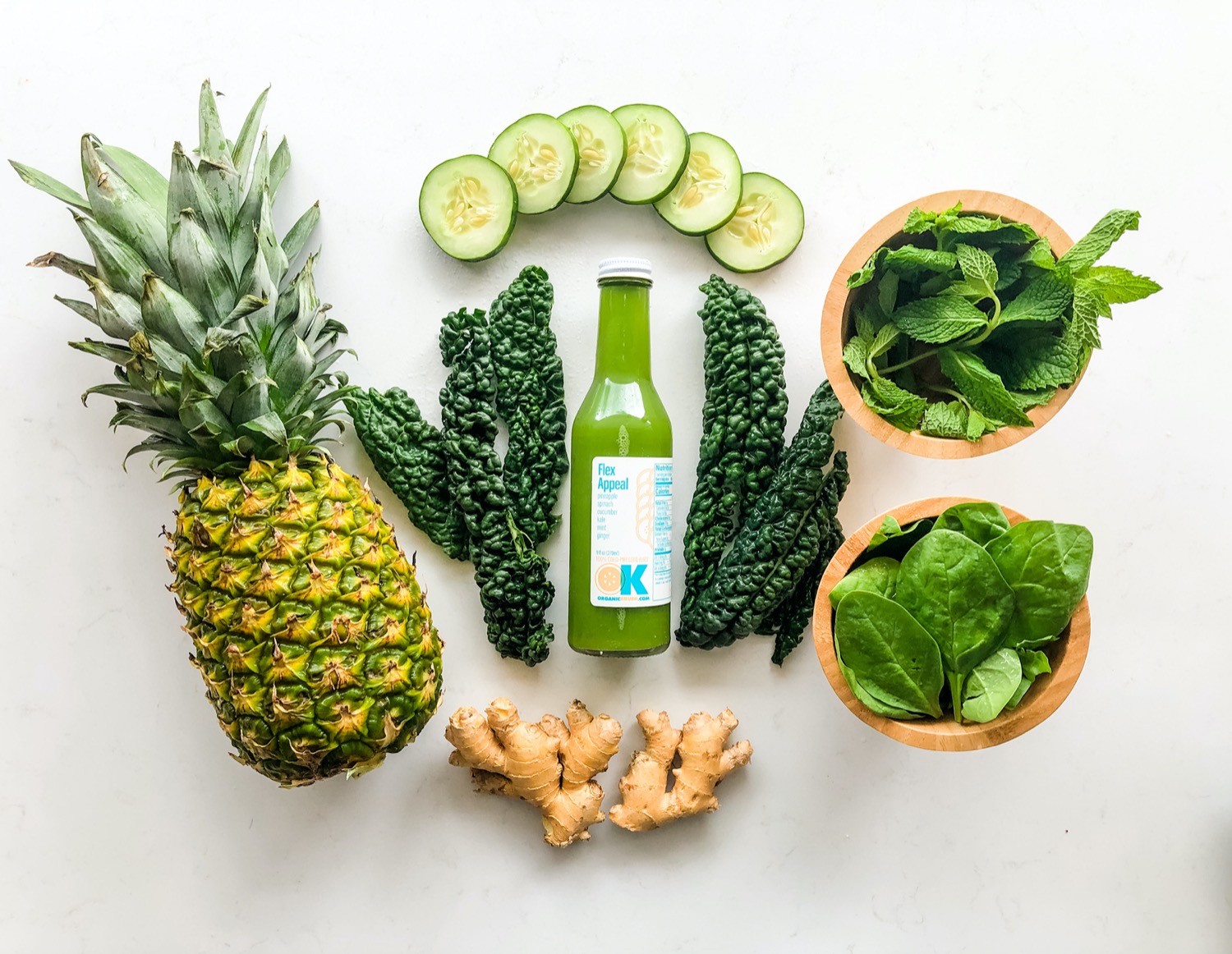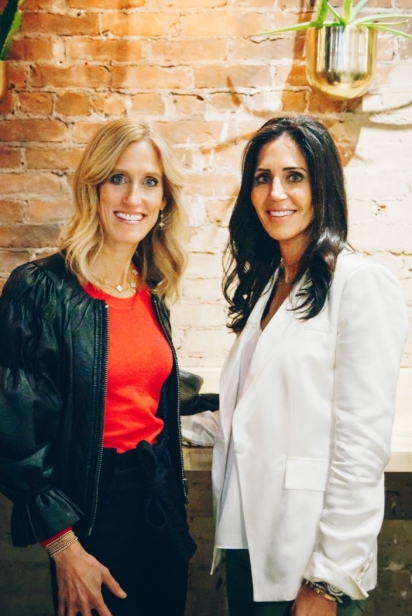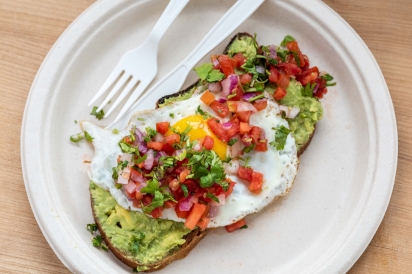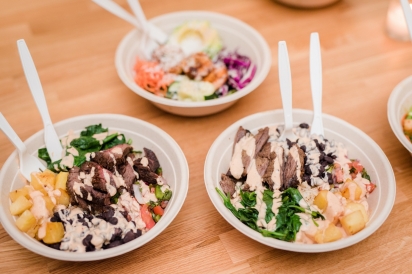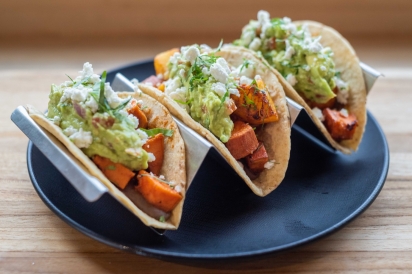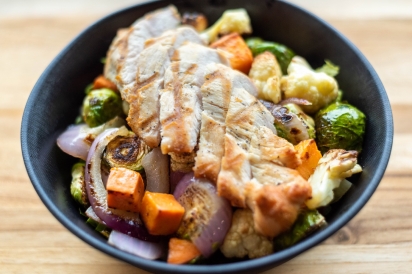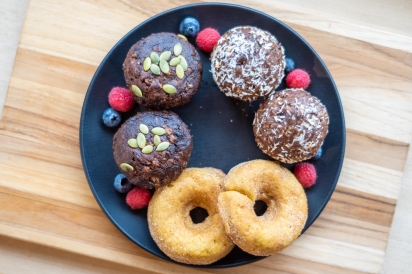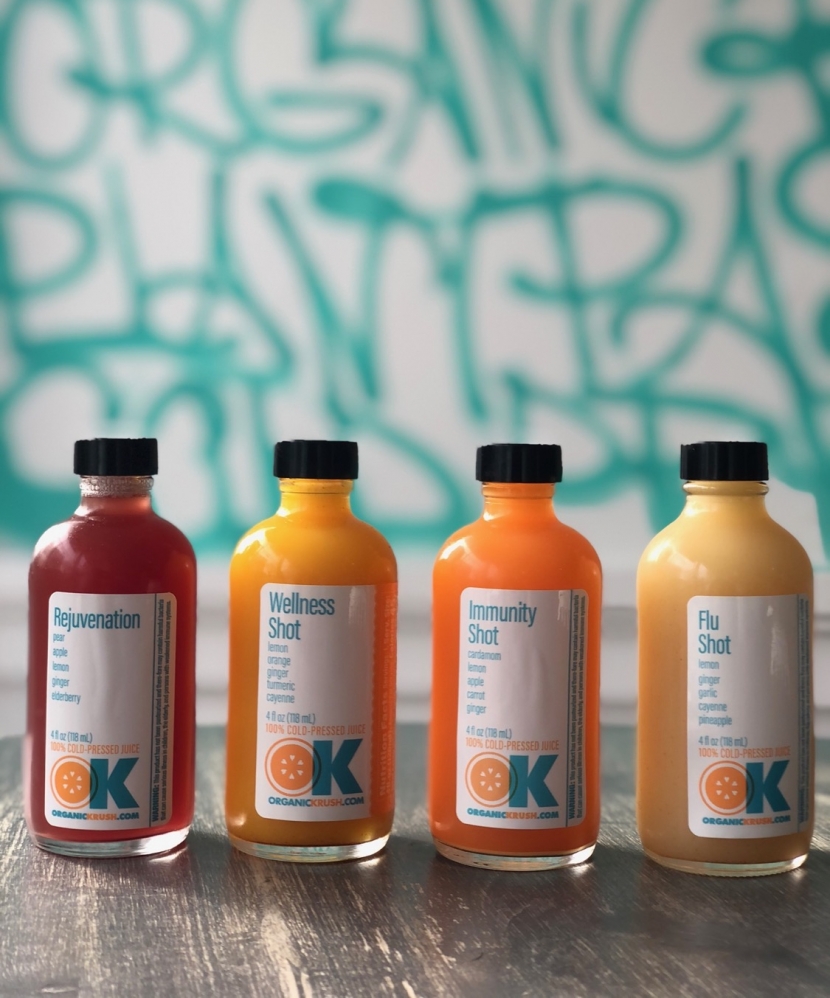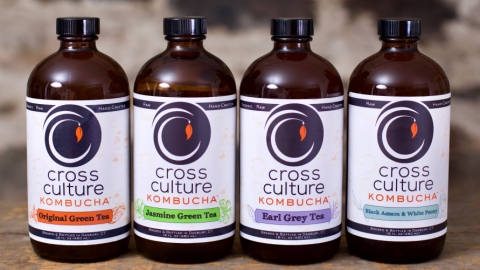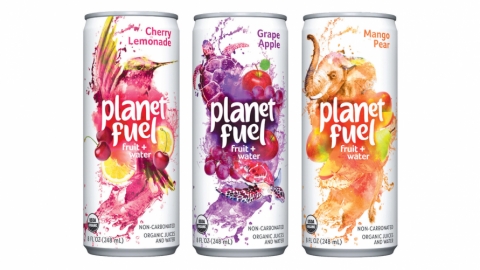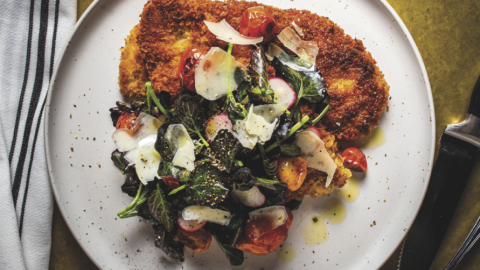Healthy People, Healthy Planet
Photos courtesy of Organic Krush
At a time when more than 600 restaurants across Connecticut have been forced to shut their doors for good, Westport has welcomed a vibrant addition to its dining scene: Organic Krush, a health-focused casual dining spot with a commitment to sustainability. While the early days of the pandemic slowed business for their existing New York locations, owners and co-founders Fran Paniccia and Michelle Walrath saw promise in Connecticut. Ranked #4 in the United Health Foundation’s 2020 America’s Health Rankings, they knew that health-conscious families in Connecticut needed somewhere they could find fresh, organic dishes that could be enjoyed from the safety of their homes.
Delivery and takeout options, however, come at a cost. While they've provided a crucial lifeline for many food establishments nationwide, demand has increased for single-use and disposable items. Coupled with arguments over the safety of single-use versus reusables in protecting against the virus, many environmental measures that were in place before COVID-19 have been rolled back, as seen with plastic shopping bags and foam containers. Organic Krush, however, knows that protecting ourselves, our families, and our communities doesn’t have to mean abandoning a commitment to protecting our planet.
What does sustainability mean to you, as business owners? Has this been a part of your story since the beginning or something Organic Krush has grown into?
Michelle Walrath: Sustainability and a commitment to being plastic-free have been major principles of our business since we began. As mothers, we’re concerned about hazards not just for our own bodies but for our children’s, as well. Plastic leaches toxins like bisphenol A (BPA) and polyethylene terephthalate (PET), which many studies show may disrupt reproductive development in animals and can cause cardiovascular disease and diabetes in humans. What’s more, we’re alarmed by the damage being done to our planet by single-use plastics, and we knew our business had to step up to the challenge of going plastic-free. We created a menu that included cold-press juices and an extensive array of take-out items that would be offered in glass bottles and compostable or post-consumer recycled plastic containers with as minimal an amount of virgin plastic as possible.
We’re also members of the Surfrider Foundation’s Ocean Friendly Restaurants program. As a national ocean advocacy nonprofit, the Surfrider Foundation assists restaurants in becoming environmental stewards by guiding their business practices, from packaging to recycling, ingredient sourcing, even energy efficiency. By meeting their program requirements, we’re leveraging the power of our business to encourage our communities to take responsibility for our actions. We’re proud to be a part of Connecticut’s coastal community, and with the Long Island Sound in our backyard, it’s our duty to protect it.
What challenges have you faced as far as your sustainability choices and expanding your business?
The challenges center around cost, availability, aesthetics to the consumer, and education. While environmentally conscious to-go wares are more expensive, the more businesses commit to buying them, the more the prices will come down. It helps to buy in bulk, which has forced us to plan carefully and hunt for the best prices available while also not compromising our values.
Aesthetically, eliminating single-use plastic presents a challenge when considering how to visually present certain foods to shoppers. Bioplastics, while a step in the right direction, aren’t as perfect an alternative as we would hope for. Post-consumer recycled plastic containers allow shoppers to see what they’re buying without the use of virgin plastic.
Glass has been quite an adventure. Not only is it expensive, it takes up a lot of storage space and is fragile. But we’ve learned to plan for that, and we encourage our guests to do the same. Plan ahead for your needs and reuse what you have on hand. By educating communities on the importance of reusing containers and reducing their use of single-use plastics, we can increase the demand for sustainable alternatives and make them more accessible for a wider consumer market.
Do you feel like plastic affects the quality of your juices or food? Do you consider there to be an intersection between human health needs and the health of our planet?
Absolutely. Our cold-pressed juices retain their pure nutritional content through a process called high-pressure processing. To then store our product in plastic would defeat the purpose of this process. The acidity of the juices can cause the plastic bottles to leach harmful chemicals like the BPAs and PETs mentioned earlier. They can also impart an odor and taste on the food they contain, and we know our guests can taste the difference.
While glass is made from sand, a naturally occurring resource, plastic is a petroleum-based product that’s created using hazardous chemicals, and the manufacturing process contaminates the environment in the surrounding areas. During the production of our 2010 documentary, Tapped, which examined the bottled-water crisis, we met people living in what are known as “fenceline communities.” They’re almost always living below the poverty line and are unable to escape the toxins that are released into the surrounding air and waterways as a result of plastic manufacturing. By reducing our reliance on single-use plastics, we can improve the lives of many.
Has the pandemic put pressure on your decisions about single-use versus reusable options to help cut costs?
The pandemic showed us that there has never been a more important time to prioritize our communities' health and well-being. At the same time, turning to cheaper single-use options was not a route we were willing to take in order to keep our business alive. Not only had we stocked our supplies for many months ahead, we had also made a commitment six years ago as business owners and concerned global citizens. We will contribute products to the world of restaurants that nourish, heal, and inspire, using the most eco-friendly options on the market in hopes of building a more sustainable future.
We strongly believe in the power of education in making a positive impact, and the pandemic has allowed us to reach people at home as they connect with the world around them digitally. Our newsletter and social media are dedicated to encouraging people to create healthy meals and lead low-impact lifestyles. We want our audience to feel nourished and energized as they maintain active lives exploring the world around them.
What advice do you have for other businesses that would like to reduce their plastic footprint and become more sustainable?
We applaud business owners for making a commitment to the future of our planet; it’s not always easy, but the more people we have onboard, the greater an impact we can make. Start with the product you use the most or sell the most of. We don't say, “Start small.” We say, “Start immediately - and start big.” For example, if you cook a lot of meat in your restaurant, commit to grass-fed and organic as a starting point. Swap out your disposable cutlery right away for an eco-friendly brand. As members of the Ocean Friendly Restaurant program, we’ve gotten a lot of guidance and assistance on the best options for our business. Ask your vendors for alternatives to plastic drink bottles. Water now comes in glass and cardboard packaging, which is better – not perfect, but better. Install a water filter at one of your prep sinks, so employees can safely drink the in-house tap water and clean all your vegetables and produce in filtered water. This, right away, will make a difference you can all feel.
And you can always talk to your customers! Surprisingly, people are often willing to spend a little more if they can feel confident their money is supporting environmental efforts. Don’t stop at just one thing. Build on your successes and keep striving for positive health and environmental change.
While restaurants and businesses have an important role to play in protecting our planet, consumers can take action, too. Whenever possible, bring your own reusables: shopping bags, water bottles, utensils, and more; make sure to request no utensils when ordering takeout; and plan ahead, ordering more food in fewer orders, thereby reducing shopping and delivery trips. And lastly, supporting small businesses has never been more important, so shop local and help keep your community strong.
> Organic Krush: 374 Post Rd. East, Westport; 475-477-1275


